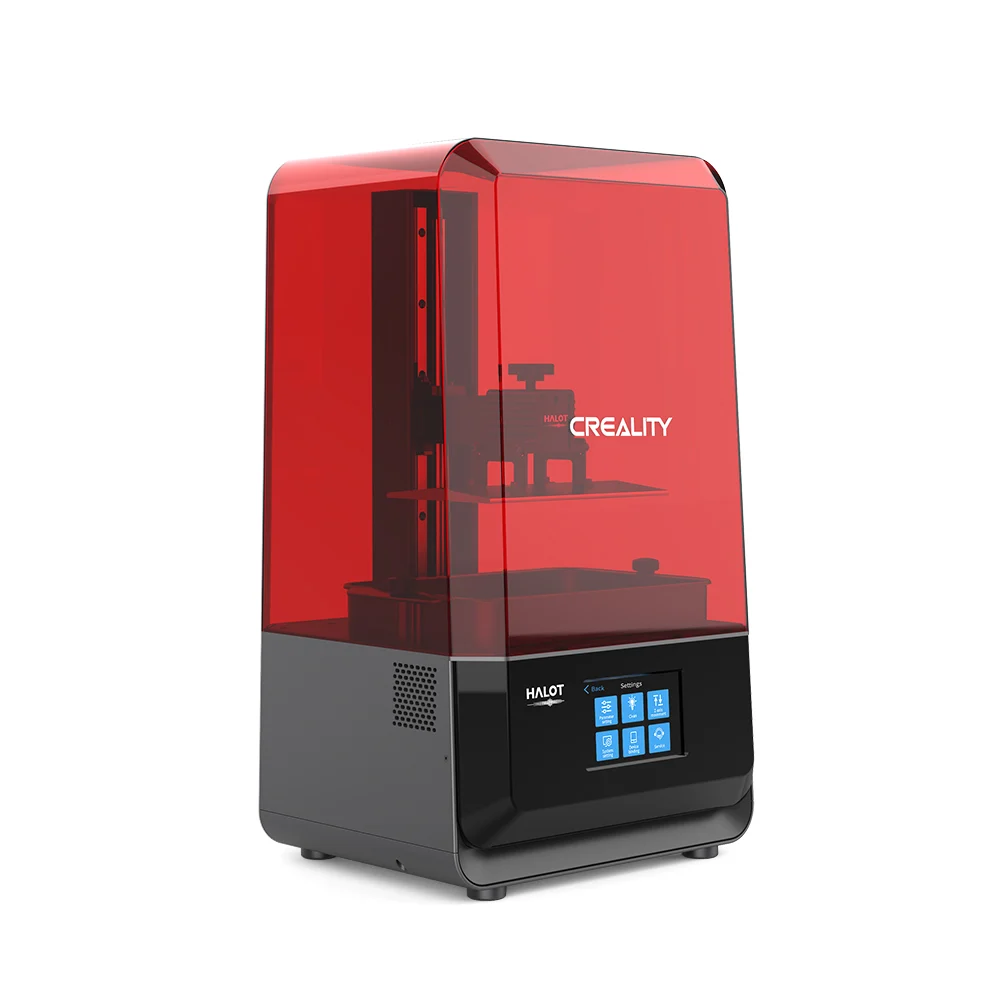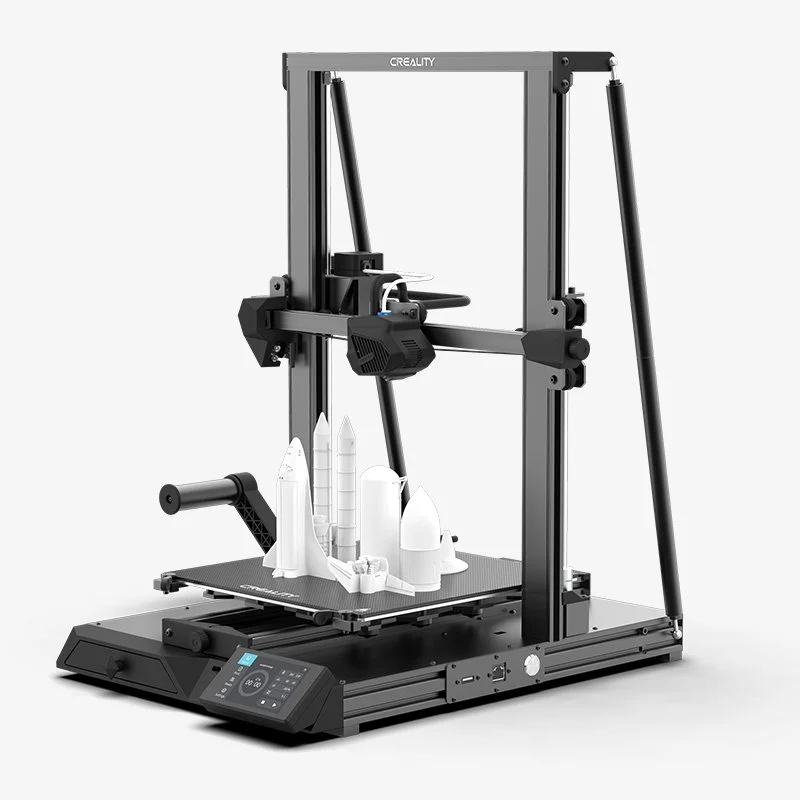Compare Halot Lite vs CR 10 Smart
Comparison between the best 3D printers
Choose the best 3D printer at the best price. The cheapest 3D printers are here.
Buy a 3D printer here with 3D Fila.
 |
 |
|
| Model | Halot Lite |
CR 10 Smart[BUY CR 10 Smart] |
| Printing Material | Resin | Filament |
| Buy Resin for Creality 3D Halot Lite | Buy Filament forCreality 3D CR 10 Smart | |
| Estimated price | $400,00 | $520,00 |
| Manufacturer | Creality 3D | Creality 3D |
| Release Year | 2021 | 2021 |
| Print Volume [mm] | 192x120x200 | 300x300x400 |
| Printer Size [mm] | 330x301x572 | 578x522x648 |
| Weight [kg] | 10,6 | 14 |
| Power Loss Recovery | NO | YES |
| Maximum Resolution [mm] | 0,01 | 0,1 |
| Processor | Processador ARM STM32F103 RET6 CPU | |
| Display | Display touchscreen 5'' | Display touchscreen 4,3'' |
| Power Supply | 110/220V / 350W | |
| Connectivity | SD / USB | SD / USB / Wi-Fi |
| Operating systems | Windows, Mac, Linux | Windows, Mac, Linux |
| Date of registration in the system | 2022-11-04 | 2022-11-04 |
| Release date | 2021 | 2021 |
| Extra features | Crealitys Halot Lite printer stands out in the mid-size resin 3D printing segment, with a build volume of 192 x 120 x 200 mm and 50 micron resolution. It offers a monochrome LCD for fast and durable printing, and an upgraded light source that ensures over 80% uniformity across the print bed. It includes Wi-Fi connectivity for remote control and updates, an ARM Cortex CPU for efficient performance, and is compatible with Halot Box and Lychee slicing software. It also has an activated carbon filter to reduce odors. | The Creality CR-10 Smart stands out for its stability, with a dual Z axis and additional supports, minimizing oscillation in high prints. Its redesigned hotend offers better cooling, expanding the range of usable materials. The glass printing surface, with automatic leveling, facilitates the adhesion and removal of parts. Includes Wi-Fi / LAN connection and automatic shutdown after printing, adding convenience and efficiency. It features an effective single-gear extruder and an intuitive touchscreen interface, despite some firmware issues. |
| Support for multiple colors and materials (AMS and CFS) | NO | NO |
Notes * |
||
| Cost-benefit | 8 / 10 | 6 / 10 |
| Hardware | 1.2 / 10 | 2.4 / 10 |
| Tela | . | . |
| Print volume | 3 / 10 | 4 / 10 |
| Performance | 9 / 10 | 2 / 10 |
| [BUY CR 10 Smart] |
Conclusion |
| In comparing the Halot Lite and CR-10 Smart 3D printers, several factors emerge that highlight their respective strengths and weaknesses. The **Halot Lite** is designed for resin printing, offering high resolution and impressive speed, which makes it an excellent choice for detailed models. Its compact build volume is suitable for smaller projects, and the added benefits of Wi-Fi connectivity and an efficient ARM Cortex CPU enhance its usability in various environments. However, it lacks power loss recovery, which could be a drawback for users concerned about interruptions during longer print jobs. On the other hand, the **CR-10 Smart** focuses on FDM printing, featuring a significantly larger print volume, enabling the creation of larger parts without the need for assembly. Its dual Z-axis design and effective cooling system provide stability and versatility, making it suitable for a broader range of materials. The inclusion of power loss recovery, automatic leveling, and a user-friendly touchscreen interface adds to its convenience. However, its lower resolution and some noted firmware issues could affect performance in specific scenarios. When considering price, the Halot Lite offers a better cost-benefit ratio, especially for those focused on high-quality resin printing. In contrast, the CR-10 Smart provides more versatility for larger prints and different materials, making it a strong option for users who prioritize print volume and stability. Ultimately, the choice between these two printers should be guided by the intended use: for high-detail models in smaller sizes, the Halot Lite is preferable, while for larger, more diverse prints, the CR-10 Smart stands out. Both printers deliver valuable features, aligning with diverse printing needs and preferences, providing tangible benefits for the respective genres of 3D printing they serve. |

